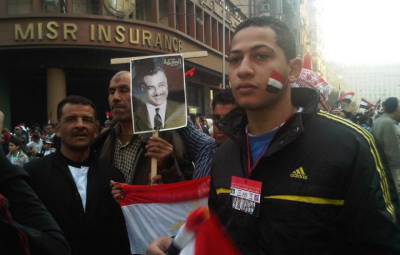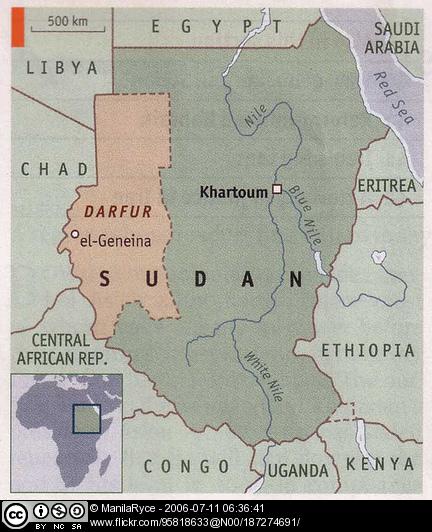Federalism in Nigeria: Contextualising Boko Haram and the Fuel Subsidy
When Boko Haram killed nearly 70 civilians over the Christmas holidays, many observers in the Western media were quick to chalk it up to wanton Islamic extremism. The attacks, it was concluded, reflected global jihadist activity. Emphasis was placed on the group’s links to al Qaeda. This narrative is shortsighted. For one, it ignores Christian retaliation just days later, including the bombing of a madrasa that injured seven. More broadly, it decontextualizes the violence. Nearly 500 Nigerians were killed in the northeast in 2011 due to sectarian conflict. Suicide attacks, car bombings, and assassinations-by-machete have been documented throughout the country, Africa’s most populous and the linchpin of Western engagement with the continent. Such killings are not new to Nigeria: religious strife has been a constant for decades, …
Will Tony Blair’s Africa Governance Initiative’s focus on large-scale economic investment lead to further underdevelopment in Africa?
Tony Blair’s establishment of the Africa Governance Initiative (AGI) has been lauded by reporters and bloggers as being indicative of a “new” way for the international community to engage with African countries to assist in poverty reduction and to move “beyond aid” by “attract[ing] sustainable investment” to the continent. While the tenets of Blair’s AGI are fairly clear — focusing on strengthening African leadership and good governance and boosting economic growth through sustainable development of infrastructure — a visit to the AGI website is less than clear on how the initiative will (or can) ensure the necessary good governance. The AGI model can be summarized as: Leadership (founded on skills, systems and structures) + prioritisation + planning + performance management …
How are election preparations unfolding in the Democratic Republic of the Congo (DRC)? Hope or failure? Two perspectives.
Elections and the elusive quest for peace and stability in the eastern DRC: A perspective from the ground, based on fieldwork carried-out in North Kivu province in August and September, 2011 By Lindsay Scorgie Driving down the dusty main road of Butembo – a city of over half a million people, in the eastern DRC province of North Kivu – I hear the usual urban Congolese noises of motorcycles and lorries driving madly by. But these days there is a new sound too: shovels hitting the ground. All along the main road, construction is underway, as the central thoroughfare of Butembo is being paved for the first time. Not only is this an extremely rare sight in Congo, but it …
How the ICC can help Kenya
The ongoing International Criminal Court trial into the so-called “Ocampo Six” is a reminder of how raw the violence around the 2007 Kenyan election remains. It now seems likely that the verdicts on the six won’t be announced until next year – until which time Uhuru Kenyatta, one of those accused of inciting ethnic violence, remains in the post of Deputy Prime Minister. Over 1100 were killed, and had the coalition agreement not come when it did, the spectre of fully-blown Civil War was a genuine possibility. The international community was in shock, having traditionally viewed Kenya as one of the least violent countries in Africa. Really, they shouldn’t have been. A brief history lesson into how Daniel Arap Moi …

The Myth of ‘Sixty Years of Oppression’
Reem Abou-El-Fadl has recently published an article in Al-Akhbar English newspaper entitled ‘From Nasser to Tantawi: The Myth of “Sixty Years of Oppression”‘. The article considers the connections that have been made in Egypt between the July 1952 Revolution, launched by the Free Officers movement, and the January 2011 Revolution, launched by this year’s popular uprising in Egypt. The article acknowledges that military officials first came into government after the July Revolution, but it goes on to explore the deceptive myth of ‘sixty years of oppression’ since, which has been heard often in recent months. ‘Yet today’s generals are protecting an entirely different set of interests from those important to the Free Officers. They have presided over months of delay …

China and India in Sudan: an Uncertain Relationship
On June 21, at the Manor Road Building, Oxford University, Daniel Large and Luke Patey discussed the role of China and India in Sudan’s oil sector. This industry is of particular interest today, as on the 9th of July the country will split into Northern Sudan and Southern Sudan. The recent border clashes illustrate the lack of agreement between the two sides about the sharing of oil revenues. The two speakers situate this issue within an international context by contrasting the involvement of China and India and discussing the long-term prospects of Sudan’s oil industry, among other interesting questions. China’s involvement in Africa has become a hot topic in media and political discussions. This has concealed that of other Asian …
Justice and Gadhafi’s Fight to the Death
Everyone wants to see wrongdoers punished. But safe exile for bad rulers is often the least worst option. The violence in the Ivory Coast that has left more than 1,300 dead since last November’s presidential election may soon be coming to an end. Incumbent President Laurent Gbagbo, who refused to cede power after losing in the polls to Alassane Ouattara, is reportedly negotiating the terms of his surrender after a week-long offensive by pro-Ouattara forces. What’s puzzling about how this conflict is ending is why Gbagbo didn’t leave sooner, especially after African Union leaders had offered him immunity several times if he agreed to go into exile in South Africa. With 80% of Ivorian territory taken by pro-Ouattara forces and …
Mundane internet tools and political mobilization
For some time, I’ve been developing the argument that when we want to understand the role of internet technologies in politics—in particular when it comes to getting people involved in electoral campaigns, in various forms of activism, and in other forms of civic and political activity—we should focus less on the newest and most heavily hyped tool of the moment (Twitter election! Twitter revolution!) and pay more attention to the role of what I call “mundane internet tools” like email, search, and ordinary websites. New Media & Society has published the article where I make the argument, based on ethnographic research I did during the 2008 U.S. elections, but based on intuitions and interests aroused by previous research in the …









